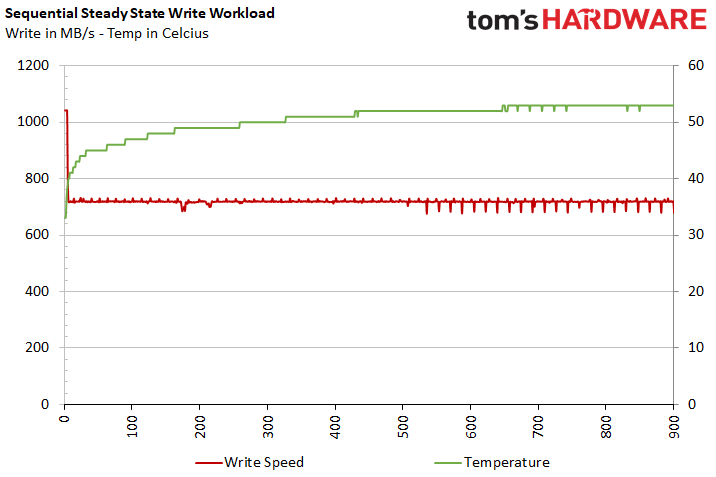Patriot Evlvr Review: Evolving Your Workflow
Why you can trust Tom's Hardware
Performance Results
Comparison Products
In today’s review, the 1TB Patriot Evlvr faces storage options that range from a slow 1TB DIY external hard drive all the way up to one of the fastest externals we have reviewed so far, the 1TB Samsung X5. The USB 3.1 Gen 2 1TB SanDisk Extreme Portable SSD and the 512GB Angelbird SSD2go represent middle-range products. We also threw in the older USB 3.0 the 250GB Samsung T1 and 256GB Patriot Supersonic Phoenix SSDs. Finally, we paired a DIY external from Aukey with a WD Blue 3D SSD.
ATTO
ATTO is a simple and free application that SSD vendors commonly use to assign sequential performance specifications to their products. It also gives us insight into how the device handles different file sizes.
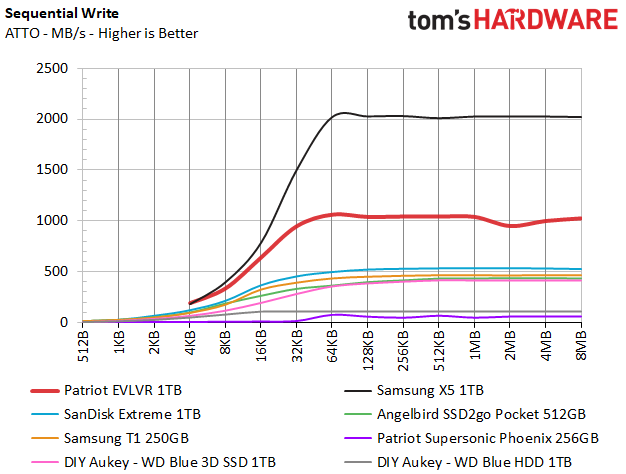
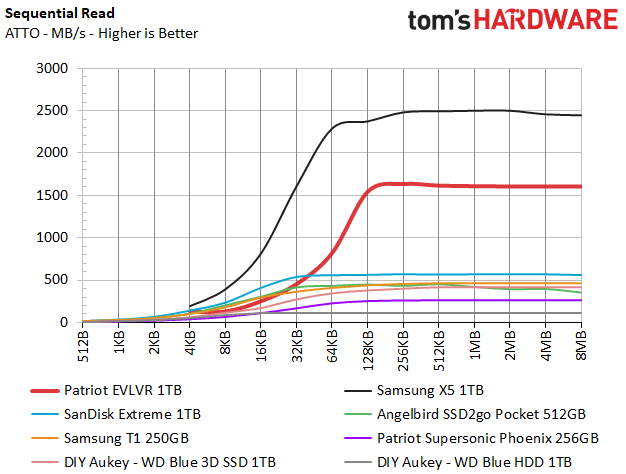
Patriot’s Evlvr ramps up to its rated sequential read speed slowly, but it places second to the Samsung X5 once it reaches the 128K file size. The Evlvr's 1.6GB/s of read throughput is three times faster than any USB device.
The Evlvr has a distinct advantage over the USB devices with 1GB/s of sequential write throughput across the entire range of file sizes.
CrystalDiskMark
CrystalDiskMark (CDM) is a simple and easy to use file benchmarking tool that many storage vendors use to assign specs to their products.
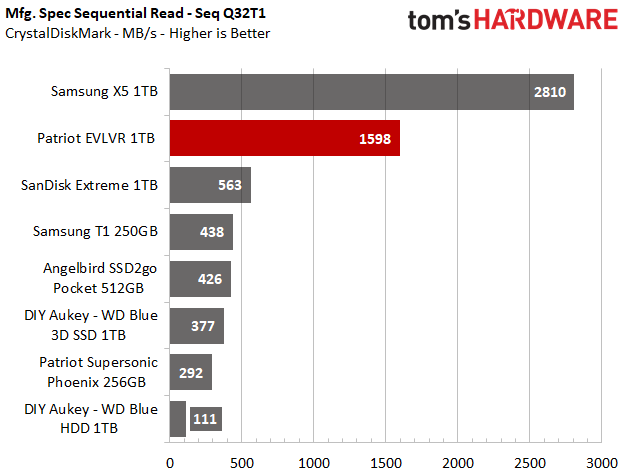
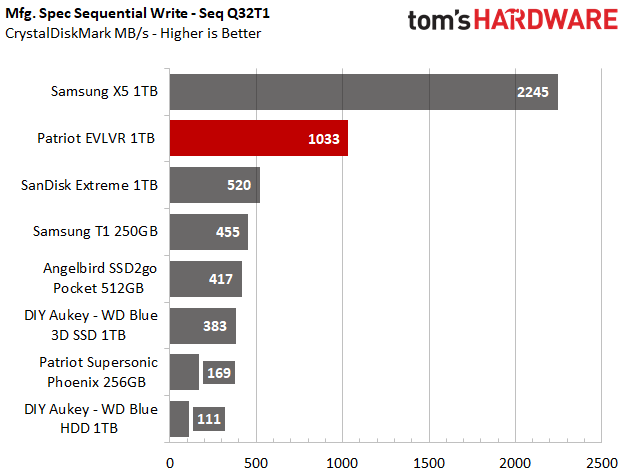
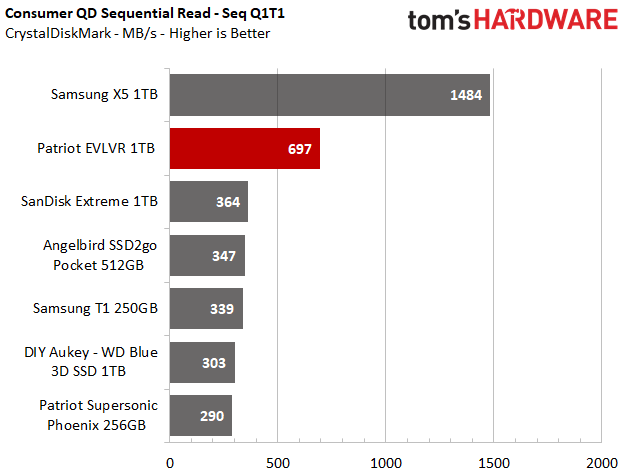
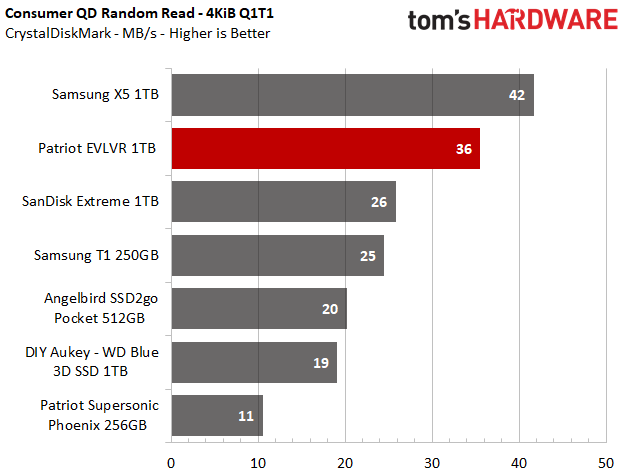
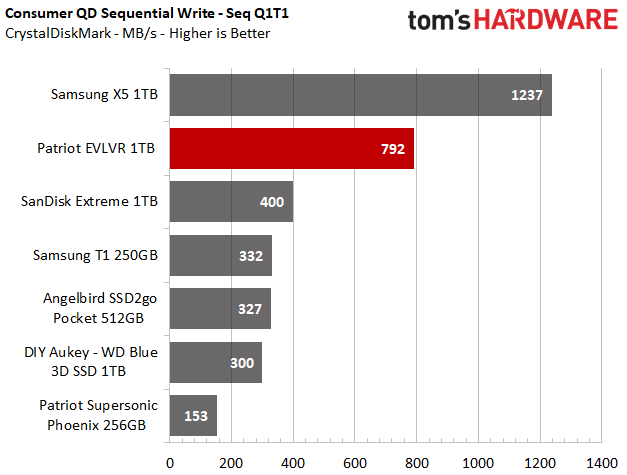
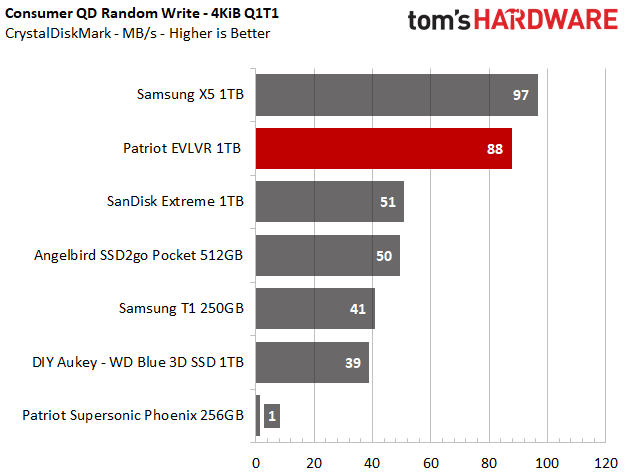
The Patriot Evlvr ranks second again with sequential performance of 1.6/1GB/s read/write at QD32, which is right in line with the manufacturer's specifications.
The Evlvr’s QD1 performance is more representative of the performance we normally see in day-to-day use. At QD1, the Patriot Evlvr delivers twice the performance of the 1TB SanDisk Extreme in both sequential reads and writes. It also performs well during small file transfers.
Get Tom's Hardware's best news and in-depth reviews, straight to your inbox.
Transfer Rates – DiskBench
We use the DiskBench storage benchmarking tool to test file transfer performance with our own custom block of real data. We test external drives with three file transfers that consist of 25GB of photos (10GB of iPhone jpgs and 15GB of RAW photos), 50GB of movies, and 25GB of documents. First, we transfer each folder from a 1TB NVMe SSD to the external device; then we follow up by reading a 3.7GB 7-zip file and a 15GB movie back from the device.
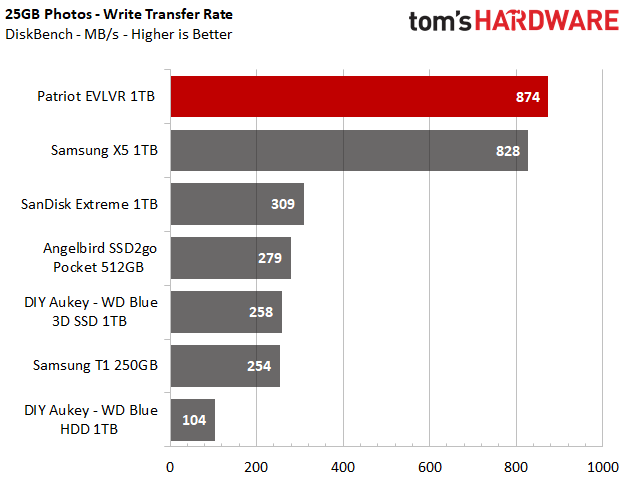
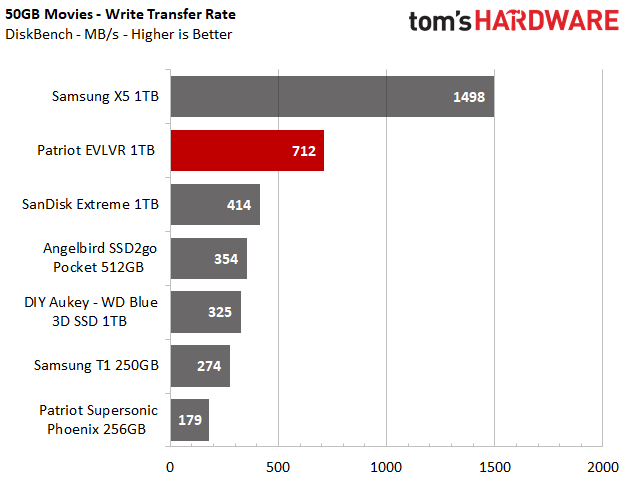
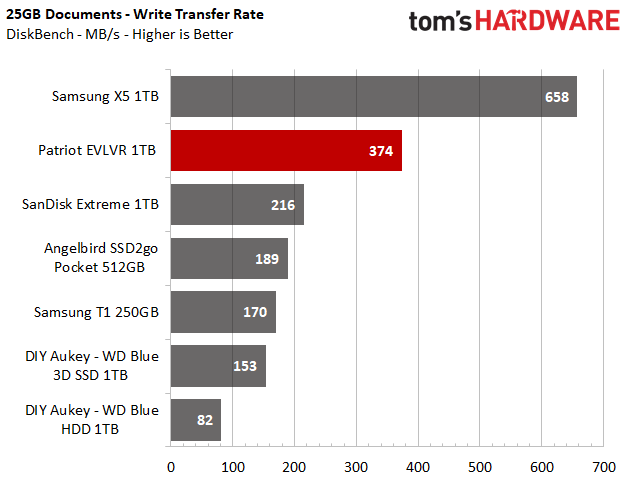
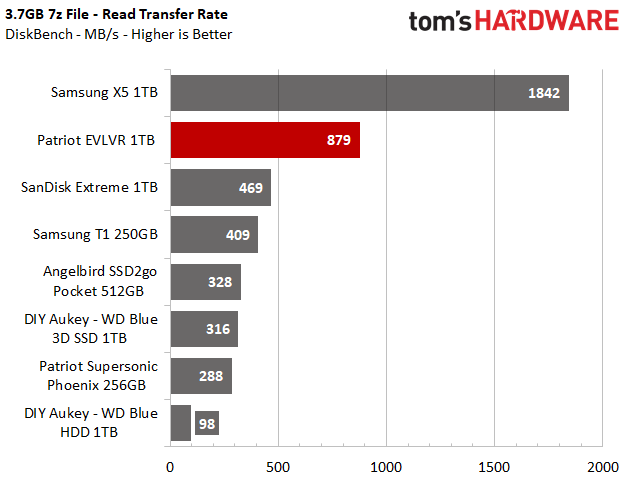
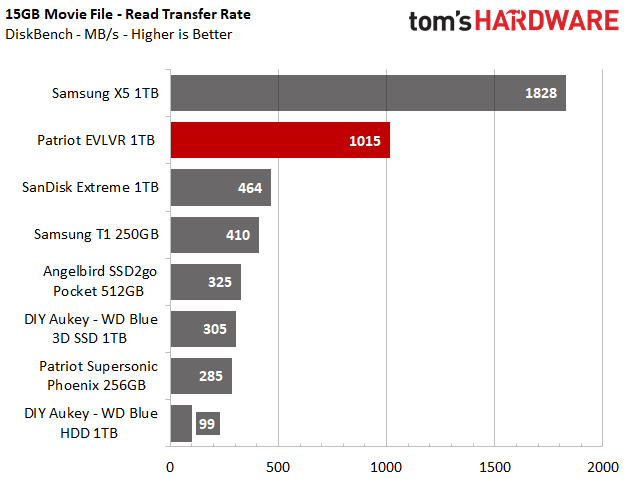
The Patriot Evlvr again delivers two to three times more performance than standard USB-based SSDs. It ranks second to the Samsung X5 in four out of five of these tests, but it pulled off a win during the photo transfer. That's surprising because of its much lower write speed during our synthetic testing.
Write Saturation and Temperature
Write speed and temperature are two important and inter-related metrics for external devices. We threw in one last test to measure the performance of the Patriot Evlvr over the course of 15 minutes of writing to the full span of the drive. We logged the temperature of the drive via the S.M.A.R.T. data to see when (or if) thermal throttling kicks in and how it impacts performance. This test also reveals if the drive has an SLC cache, which is a small portion of fast flash that absorbs incoming write workloads. Bear in mind that results will vary based on the workload and ambient air temperature.
Like the Samsung X5, Patriot’s Evlvr features an SLC write cache. Here, we wrote 5GB of data before the Evlvr's buffer filled and it began writing directly to TLC flash. Unlike the Samsung X5, however, it didn’t thermal throttle and maintained a very consistent 720MB/s write speed.
MORE: Best SSDs
MORE: How We Test HDDs And SSDs
MORE: All SSD Content

Sean is a Contributing Editor at Tom’s Hardware US, covering storage hardware.
-
Brian_R170 Would be nice to see a review of external Thunderbolt3/PCIe-M.2 enclosures to see how they compare in performance and price to the turn-key solutions.Reply -
WyomingKnott Now we know how well it works on a Mac or Macbook Pro. Can you benchmark it for USB 3 gen whatever, or is this for now very special-purpose hardware?Reply -
seanwebster Reply
Test's were on an Intel-based Windows system with an ASRock Thunderbolt 3 AIC. It isn’t compatible with USB Type C ports. Instead, it will only work with true TB3 ports.21325124 said:Now we know how well it works on a Mac or Macbook Pro. Can you benchmark it for USB 3 gen whatever, or is this for now very special-purpose hardware?
As per the review:
"You'll need to use the supplied cable and a true Thunderbolt 3 port. We tried using a USB Type C cable we had in the lab, but it didn’t work with the Evlvr. We also tried using the drive in a USB 3.1 Gen 2 Type C port, but we were greeted with a “Thunderbolt device functionality might be limited” popup notification and the Evlvr didn’t show up in Windows Explorer or disk management."
